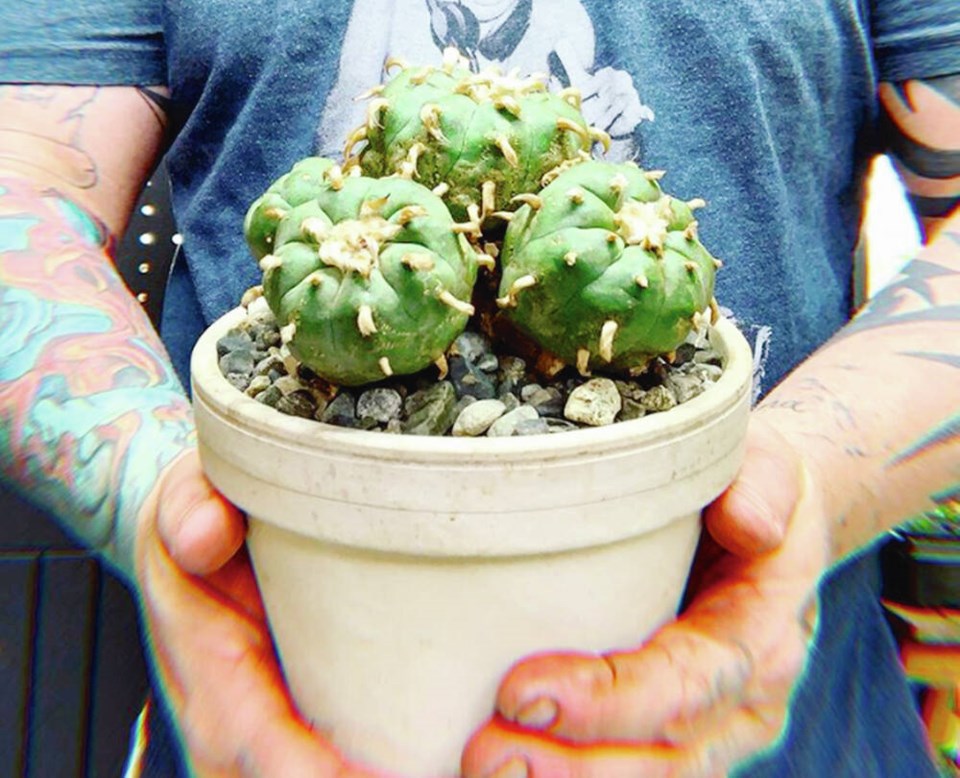A man who landed a five-month conditional sentence for unlawfully importing cacti from Germany is blaming a lack of clarity around import and export laws.
In November, Kyle Cheyne pleaded guilty in provincial court to two counts of unlawfully importing multiple species of cacti without obtaining the required permits. He was found to be in contravention of the Wild Animal and Plant Protection and Regulation of International and Interprovincial Trade Act.
Cheyne’s charges stem from Nov. 13, 2019, when Victoria police informed wildlife enforcement officers of a package containing 27 live cactus plants. They were identified by a Canadian Food Inspection Agency inspector as plants listed under the Convention on International Trade in Endangered Species of Wild Fauna and Flora, an international treaty that protects endangered and threatened species of animals and plants from exploitation.
Cheyne said he tried to follow rules around importing and exporting his cacti. His first international purchase was made on EBay, after which he was given a warning and told to obtain permits for future purchases.
Cheyne said he communicated with a wildlife enforcement officer about what permits he needed for future purchases from Thailand, but when his packages came in, they were seized because he still hadn’t obtained the proper import and export licences. The packages from Germany came shortly after, and Cheyne was charged.
Those charges say that Cheyne “contributed to and encouraged the buying and selling of a rare species of cacti,” a practice that threatens wild species and contributes to habitat destruction. But Cheyne claimed he has only ever sold seedlings and collects the cacti simply as a passion project.
“I’m not a guy illegally trying to smuggle cactuses that are getting poached from the wild,” he said. “In the courtroom, I had my head down, thinking: ‘I agree with you. I know where you’re coming from and I agree with you,’ but this is never, ever going to happen again and I’m not doing what you think I’m doing.”
Cheyne, whose Instagram page, Cacti Canada, shows a wide variety of the spiked succulents captioned with inspirational quotes or cactus facts, said his passion for live cacti began about 10 years ago, after he bought his first cactus.
“I just had it in my living room and the energy and the vibe it gave me was just nothing but positivity,” he said. “These cactuses, when they flower, some of them flower like 12 different colours. It’s something you don’t see in anything else.”
Cheyne was forced to forfeit the plants in the 2019 shipment and is banned from seeking CITE permits for two years. He still manages a humble collection of about 30 cacti, but has turned his attention to a new, and much less prickly, passion project: Hot sauce.
He launched Kyle’s Sauce Company this year, and his hot sauce is now sold at several retailers in the region.
“I have a commercial kitchen, I got the permits, the licence all that,” he said. “I can’t really get into trouble with this.”
Cheyne’s five-month sentence is to be served in the community, with one month of house arrest, 20 hours of community service and requirements to report regularly to a court-designated supervisor and stay in the province for the remainder of his sentence.


